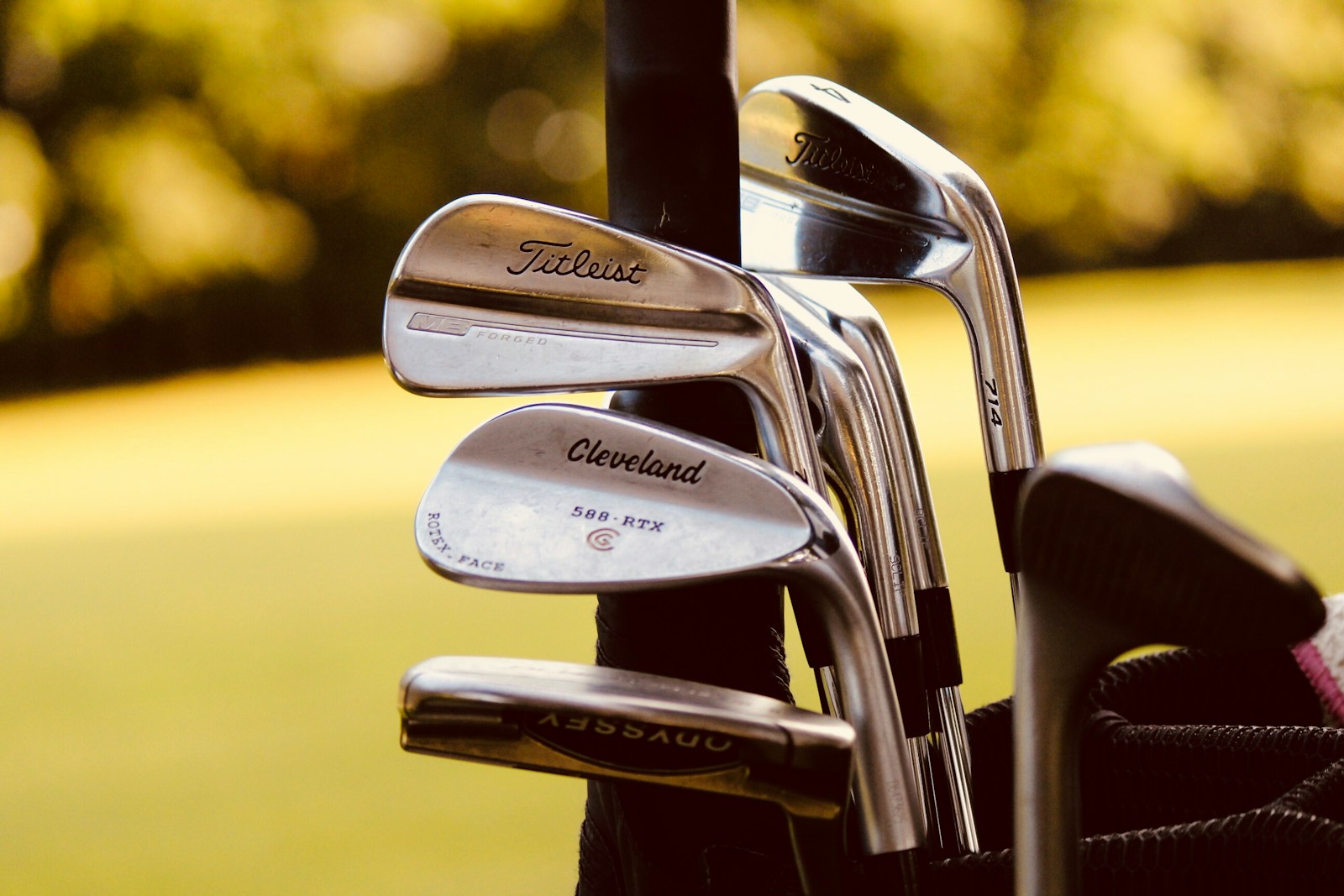Knowing how to choose the right golf club for every shot is one of the smartest skills you can develop as a golfer. Whether you’re a weekend warrior or aiming for club championships, understanding how to choose the right golf club for every shot is absolutely essential.
Let’s tee it up and dive into how you can make smarter club choices to shave strokes off your scorecard.
Why Choosing the Right Golf Club Matters for Your Game
How the Right Golf Club Turns a Good Shot Into a Great One
Ever hit a perfect swing only to see the ball come up 20 yards short? It wasn’t your swing—it was your club choice.
Using the Right Club to Manage Risk vs. Reward
Sometimes it’s smarter to lay up short of trouble with a hybrid rather than attack with a long iron. Smarter club choices often beat aggressive ones.
Choosing the Right Golf Club Based on Course Conditions
Firm fairways, soft greens, high winds—all these demand flexible thinking and good club selection.
What Affects Choosing the Right Golf Club
How Weather Affects the Right Golf Club Selection
This is the most obvious factor. Know how far you typically hit each club, not just how far you once hit it “that one time.”
Adjusting Club Choice for Elevation Changes
A strong headwind could turn your 7-iron into a 5-iron shot. Always factor the breeze.
Elevation Changes
Hitting uphill? Take more club. Hitting downhill? Take less. Simple math, big results.
How Ball Lie Influences the Right Golf Club
Sitting pretty on a fairway? Go for it. Buried in rough? You’ll need more loft to dig it out.
Using Smart Club Selection Around Hazards
Water, bunkers, OB stakes—sometimes it’s better to club down and aim safe.
Why Trust Matters When Choosing the Right Club
If you love your 6-iron but fear your 5, trust your gut. Confidence matters more than textbook advice.
Right Golf Club Choices for Every Situation
1. Tee Shots
Driver, 3-Wood, or Hybrid?
Driver for max distance. 3-wood for control. Hybrid if you just need a ball in the fairway.
When to Play It Safe with a Club Other Than Driver
Tight fairways or doglegs often call for leaving the driver in the bag.
2. Fairway Shots
Picking the Right Fairway Wood or Long Iron
Fairway woods (like a 3 or 5-wood) give great distance but can be tricky off tight lies. Hybrids and long irons offer control.
Understanding Risk on Par 5s
If you can’t reach comfortably, lay up with a reliable mid-iron instead of trying to “hero it” over water.
3. Approach Shots
Mid and Short Irons Selection
Choose an iron that gives you a full, confident swing—not a forced one.
Factoring in Wind and Pin Position
Tucked pins might mean aiming for the fat part of the green with one extra club.
4. Shots from the Rough
Choosing Clubs with More Loft
Forget the 3-wood from thick stuff. Grab a 7-iron or hybrid and focus on getting back in play.
Adjusting Expectations for Distance
Accept you’ll lose distance—and plan accordingly.
5. Bunker Shots
Greenside vs Fairway Bunkers
Greenside? Grab a sand wedge with 54-58 degrees of loft. Fairway bunkers? Use a club with less loft and avoid digging too deep.
Sand Wedges, Lob Wedges, and the Right Bounce
More bounce helps in soft sand; less bounce in firm or compacted bunkers.
6. Chipping Around the Green
When to Use a Wedge vs a Putter
Tight lies? Putt it. Fluffy rough? Chip with a sand or gap wedge.
Playing Low-Running Chips
If you can get the ball rolling quickly with a pitching wedge or 9-iron, do it. It’s safer than lofting it high.
7. Pitch Shots
Lob Wedge or Sand Wedge?
Use the lob wedge (58°-60°) for high, soft shots. Sand wedge (54°-56°) for a little more run out.
How Trajectory Affects Club Choice
Higher shots stop faster but risk more mishits. Lower shots are more reliable under pressure.
8. Putting
Types of Putters
Blade putters suit players with arc strokes; mallets suit straight-back, straight-through strokes.
Matching Putter Style to Stroke Type
Pick the one that feels natural and builds confidence—no matter what’s trending.
Special Situations that Impact Club Selection
Playing in Windy Conditions
Swing smoother, club up, and keep the ball flight lower.
Wet and Soft Course Conditions
Expect less roll-out. Hit extra club and aim for safer landing zones.
Hard and Fast Greens
Land shots softer and shorter to allow for more bounce and rollout.
The Importance of Knowing Your Distances
Tracking Your Average Club Distances
Use range sessions or apps to chart your real distances—not your “wishful thinking” ones.
How a Rangefinder or GPS Can Help
Laser rangefinders and GPS units give accurate yardages to flags, hazards, and edges.
Building Confidence in Your Club Selection
Practice Under Different Conditions
Play practice rounds in windy, wet, or cold weather to understand how your clubs react.
Commit to the Club You Choose
Second-guessing kills swings. Pick your club, commit 100%, and fire away.
Conclusion
If you want to lower your scores and build consistency, one of the most effective changes you can make is to choose the right golf club for every shot. The more thought you put into each selection, the more confident and precise your game will become.
FAQs
1. Should I always use a driver off the tee?
Not necessarily. If accuracy is more important than distance, a 3-wood or hybrid might be the smarter play.
2. How can I know my real distances for each club?
Track shots during range sessions and on the course using a GPS device or shot-tracking app.
3. Is it better to club up or down when in doubt?
Club up and swing smooth. It’s safer than forcing a smaller club to go farther.
4. How many wedges should I carry in my bag?
Most players carry three: pitching wedge, sand wedge, and lob wedge. Some add a gap wedge too.
5. What’s the biggest mistake golfers make in club selection?
Letting ego choose the club instead of reality. Play smart, not macho.










